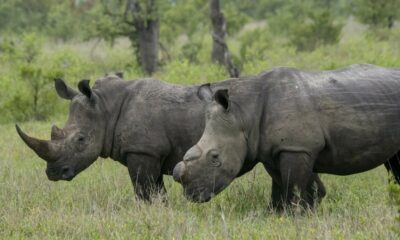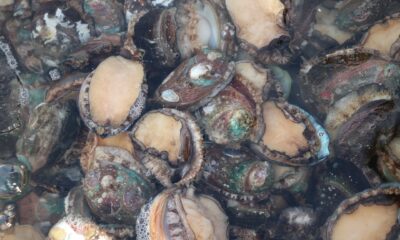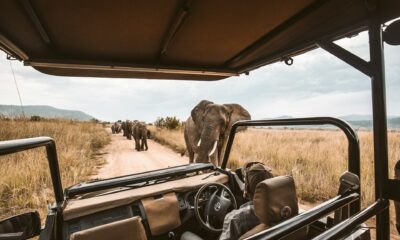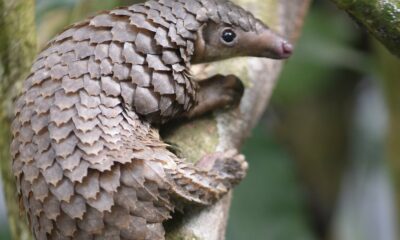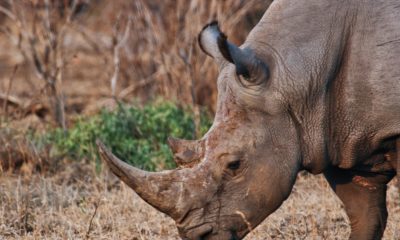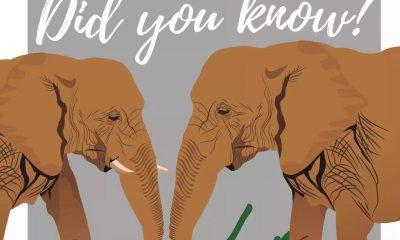News
South Africa Tightens the Net: Inside the Cross-Border Crackdown on Illegal Wildlife Trade
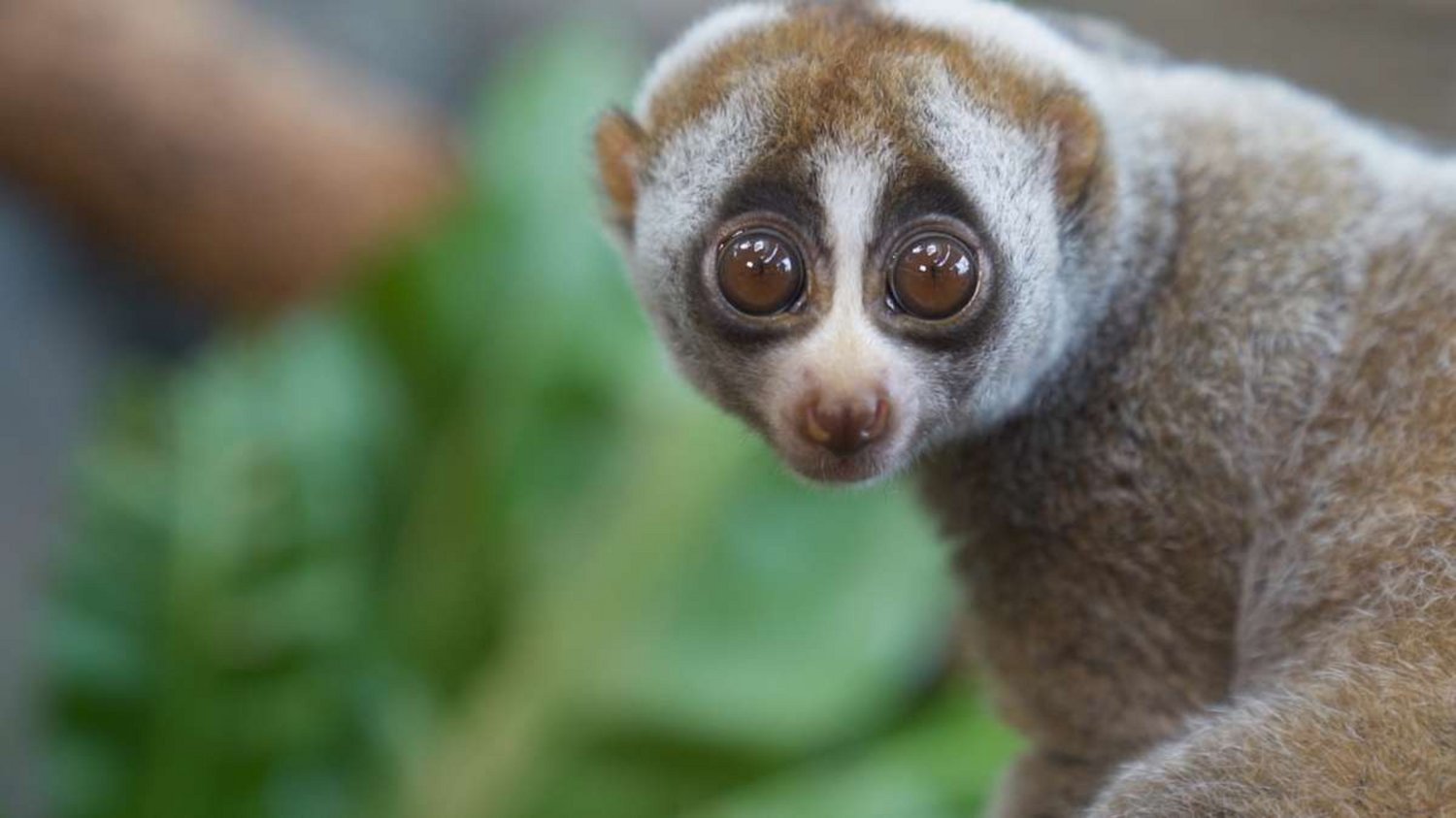
The Hidden War on Wildlife
While rhinos and elephants often dominate global headlines, a quieter and equally devastating war is being waged in the shadows, one that targets South Africa’s smallest and most overlooked species. From tiny succulents plucked from the arid plains of the Succulent Karoo to rare lizards smuggled in courier parcels, the illegal wildlife trade has evolved into one of the most lucrative forms of organised crime in the world.
The Endangered Wildlife Trust (EWT), a leading conservation organisation, has intensified its operations to fight this environmental scourge, warning that the unchecked trafficking of plants and animals is pushing several species to the brink of extinction.
“This isn’t just about rhinos or elephants anymore,” says EWT CEO Yolan Friedmann. “Entire ecosystems are under siege from criminal syndicates stripping nature for profit.”
A Billion-Rand Black Market
According to a UN Environment Programme–Interpol report, the global illegal wildlife trade is worth as much as $20 billion (R345 billion) annually. The trade spans everything from exotic pets and luxury skins to traditional medicines and ornamental plants.
In South Africa, the effects are particularly severe in biodiversity hotspots such as the Succulent Karoo, which stretches across the Western, Eastern, and Northern Cape. With over 6,000 succulent species, about 40% of which exist nowhere else on Earth, the region has become a prime target for traffickers catering to collectors in Asia and Europe.
A report published last year found that by November 2023, authorities had seized more than one million succulent plants representing over 650 species. Experts fear that millions more have already been smuggled abroad.
The Succulent Karoo: A Silent Victim
The Succulent Karoo is one of the world’s most unique ecosystems, a place where drought-hardy plants thrive in harsh desert conditions. But that beauty has become its curse.
“Collectors overseas are willing to pay hundreds or even thousands of dollars for rare specimens,” says environmental researcher Carina Bruwer, whose report highlighted the crisis. “Harvesters strip entire hillsides bare, often under the control of syndicates that use legal courier channels to ship plants out of the country.”
It’s not just plants that are disappearing. Tortoises, geckos, snakes, and sungazers South Africa’s iconic armadillo girdled lizards, are all being targeted. And once these animals enter the international black market, they rarely return.
Fighting Back: Training, Tracking, and Technology
To combat this, the EWT’s Wildlife in Trade Unit (WIT) has taken a multi-layered approach since its founding in 2017, focusing on everything from law enforcement to community education.
“Our target is the entire illegal wildlife trade value chain,” explains Friedmann. “We look at the demand, the harvesting, the transport, and the final distribution.”
So far, over 1,500 compliance and law enforcement officers have been trained through EWT programmes, covering areas such as wildlife product identification, environmental law, and criminal procedures.
The EWT also works alongside the South African Police Service, environmental inspectors, and customs officials to detect smuggling operations at borders and airports. Their canine unit, a team of highly trained sniffer dogs, has been instrumental in uncovering illegal wildlife products.
In partnership with Pilanesberg National Park, EWT’s conservation dogs have helped reduce rhino poaching incidents and intercept trafficking attempts at park gates. These dogs can identify multiple wildlife products from rhino horn to succulents, a skillset that has made them some of the most elite detection animals in Africa.
A Cross-Border Conservation Network
Wildlife trafficking doesn’t stop at borders, and neither do EWT’s efforts. The organisation has expanded its Wildlife in Trade operations into Botswana, Mozambique, Namibia, and Tanzania, helping build regional capacity to identify and stop smugglers.
“Trafficking networks operate across Southern Africa,” Friedmann notes. “To dismantle them, we have to think and act beyond national boundaries.”
Environmental activists have praised the cross-border collaboration, calling it a sign of “Africa finally taking ownership of its biodiversity.” On social media, users have shared photos of confiscated succulents and endangered reptiles with hashtags like #ProtectOurPlants and #StopWildlifeTrade, urging buyers to think before purchasing exotic items online.
The High Cost of Ignorance
The illegal wildlife trade may seem far removed from everyday life, but its impact ripples through communities and ecosystems alike. Every plant uprooted or animal captured weakens the natural balance that sustains agriculture, tourism, and water resources.
In the words of one conservationist:
“When we lose a species, we lose a piece of ourselves, our heritage, our identity, our future.”
For South Africa, the message is clear: fighting wildlife crime isn’t just about protecting animals. It’s about protecting the soul of a nation built on its wild, natural beauty.
{Source: The Citizen}
Follow Joburg ETC on Facebook, Twitter , TikTok and Instagram
For more News in Johannesburg, visit joburgetc.com

